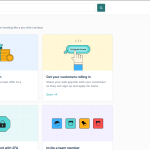Many lenders and fintechs in Nigeria often ask, “Can we debit other accounts tied to a customer’s BVN if they default, even if they didn’t provide those account details?” Unfortunately, not at this time.
The ability to debit other bank accounts tied to a BVN comes from the Global Standing Instruction (GSI) initiative by the Central Bank of Nigeria (CBN). Under GSI, licensed financial institutions can recover outstanding loan obligations by automatically debiting funds from any account linked to a debtor’s BVN across all Nigerian banks. This mechanism helps reduce non-performing loans and strengthens credit systems.
Read further: Don’t have access to GSI? Use direct debit to achieve same result
However, only CBN-licensed financial institutions can use the GSI framework. If your company is not licensed by the CBN, you cannot legally implement GSI to debit other accounts tied to a customer’s BVN.
If your organization possesses the relevant licensing, implementing GSI can significantly improve loan recovery on your platform while reducing the risk of defaults. GSI enforces borrower accountability, ensuring that customers cannot easily default while maintaining multiple funded accounts in the banking system.
For fintech lenders without a CBN license, it is essential to continue focusing on effective collection strategies, including direct debit mandates and alternative recovery processes within regulatory boundaries.
You can read the full CBN guidelines on the Global Standing Instruction (GSI) on the CBN website.
In summary, while GSI enables the debit of other accounts tied to a BVN, it is currently available only to licensed financial institutions approved by the CBN. If you are considering scaling your lending operations, exploring CBN licensing may unlock the benefits of GSI for your business.
Explore how to require direct debit mandates on all the accounts tied to your customer’s mandate on the Lendsqr admin console.


